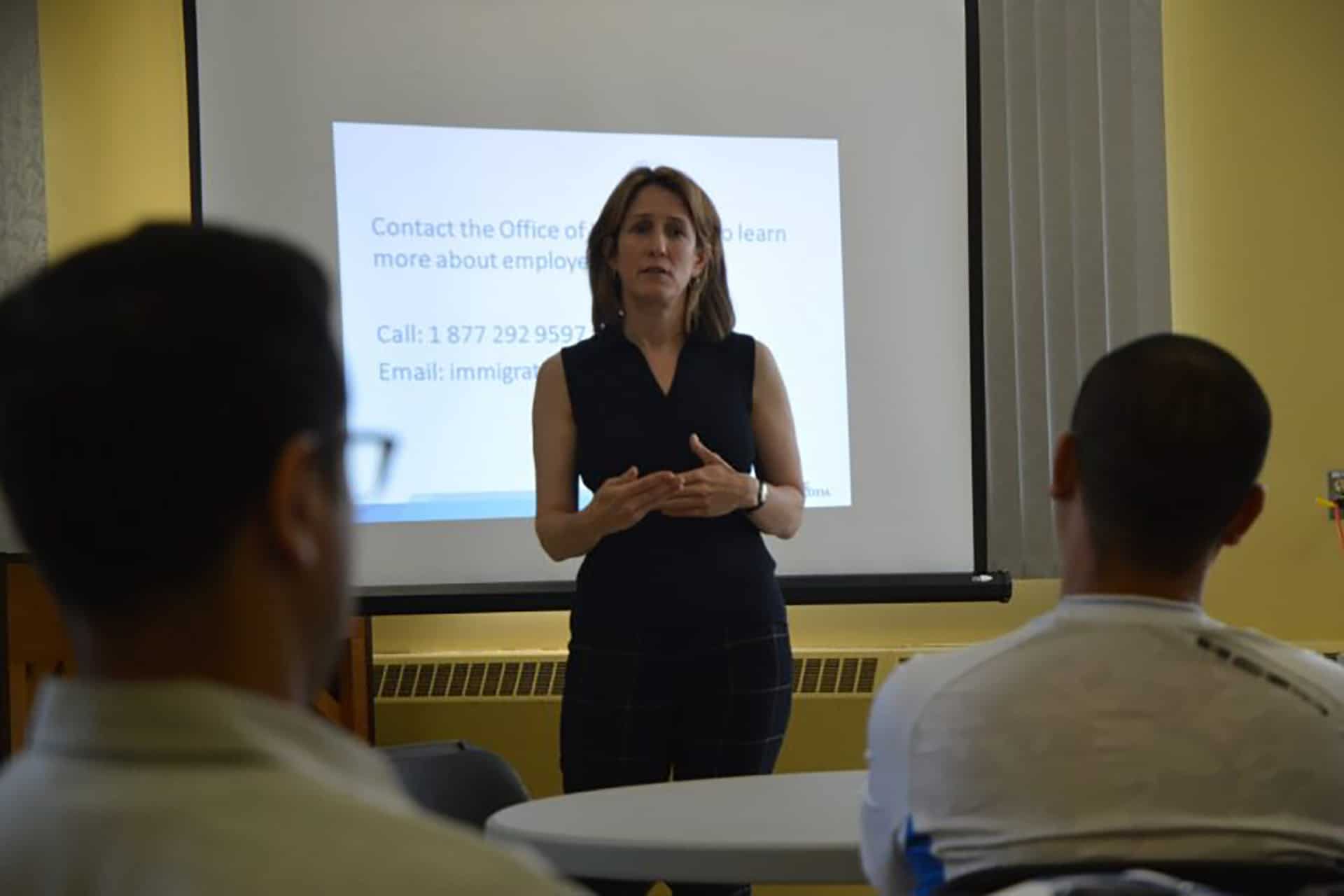June 20, 2017 · Posted by Nova Stream
Atlantic Immigration Pilot aims to bring skilled labour to Cape Breton
Pilot gives employers access to high-skilled workers and International graduates from Atlantic universities waiting for permanent residency.
Pilot gives employers access to high-skilled workers and International graduates from Atlantic universities waiting for permanent residency.

If there’s anybody who can speak to how meaningful employment can lead to permanent citizenship in Cape Breton, it’s Paul Weinberg.
He’s a Massachusetts native and owner of the Cabot Shores wilderness resort along the ocean in Indian Brook. He recently became a Canadian citizen after several years of successfully putting his many skills to work in creating a tourist destination for this island.
It’s specialized skills like his and many others that are now being recruited through the Atlantic Immigration Pilot.
“I think there’s a tremendous amount of talent out there that would be useful to Nova Scotia, especially for Cape Breton which is very limited in the labour pool,” he said, following Tuesday’s explanation of the immigration pilot at the New Dawn Centre for Social Innovation.
“We have local people working here but since we have guests from all over the world we are challenged to have people who have international experience and capabilities, whether that is cooking vegetarian food or doing things like that.”
At Tuesday’s session some 30 business owners like Weinberg were in search of ways to overcome various specialized employment issues.
They learned that employers can use the pilot to hire foreign workers and international graduates.
The pilot aims to speed up the process at the federal level and also gives candidates a work permit while waiting for permanent residency.
Other key benefits mean employers can skip the complicated labour market impact assessment process if their efforts to hire locally have been unsuccessful.
International graduates from Atlantic universities can be hired right out of school and the pilot gives employers access to permanent, immediate-skilled labour as well as high-skilled workers.
“We just have an interest in looking at different ways to recruit and be part of the immigration process as well,” said Steve Murray from the Breton Ability Centre, when asked what brought him to the information session.
“Certain positions, we do struggle with locally but it is more so just a general interest in the partnership and New Dawn and the AIP.”
Besides a wide variety of Cape Breton businesses, the information session also attracted officials from the Cape Breton Regional Municipality and the Atlantic Canada Opportunities Agency with interest in the pilot.
Employers looking to fill labour gaps through the pilot must first be approved for eligibility by being designated and then have their positions endorsed by the province.
Once the employer’s position is endorsed, candidates identified by the employer can apply for permanent residency directly to Immigration, Refugees and Citizenship Canada.
The candidates can also access temporary pathways such as getting a work permit while waiting for permanent residency.
Employers can start their application process for the program by emailing [email protected] or by calling 1-877-292-9597.
There was a similar information session held in Port Hawkesbury on Tuesday and others like it across the province.
Cape Breton Post, June 20, 2017

